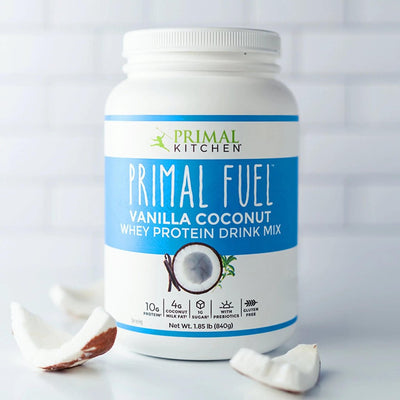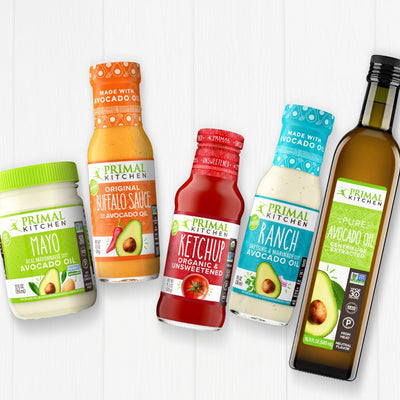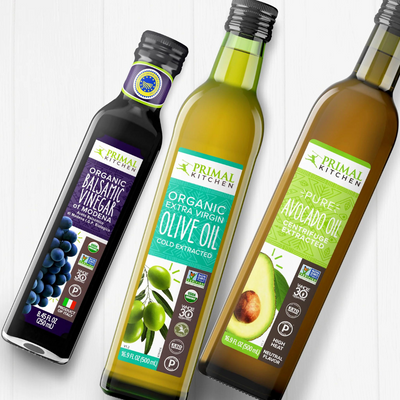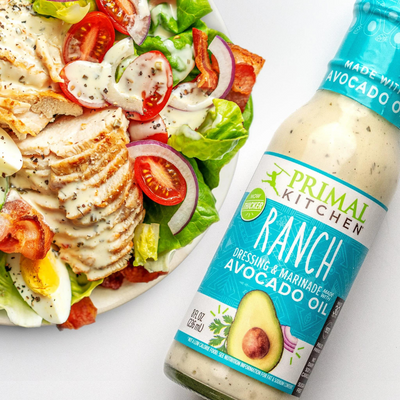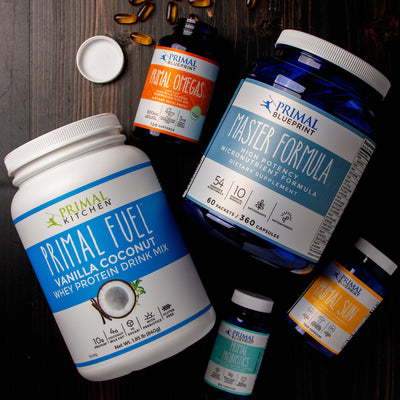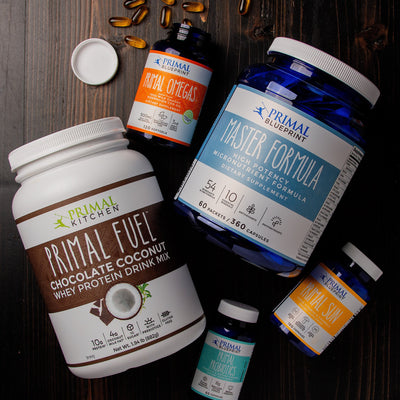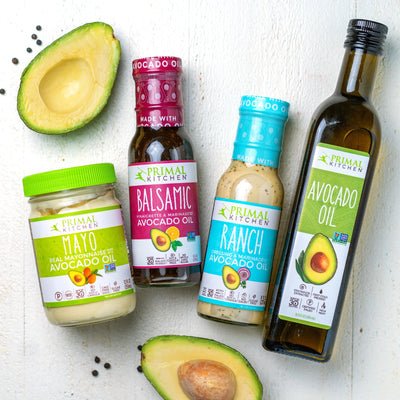The 5 Action Items
Action Item #1: Eliminate SAD (Standard American Diet) Foods
The Standard American Diet (SAD) touted by conventional wisdom is rife with foods that trigger a high insulin response and thwart health and weight goals. The first step is to identify SAD foods that compromise health and eliminate them from your home environment and shopping list. While some foods, such as junk food and fast food, are easy to identify and eliminate in the short term, others have been so firmly ingrained as food staples that it can take a sincere commitment to the Primal approach in order to reframe belief and eliminate or de-emphasize these foods.
Going Primal entails spring-cleaning the pantry and refrigerator of objectionable foods, such as grain staples (wheat/flour products, rice, corn, pasta and cereal grains), sweetened beverages of all kinds (even juices), baking ingredients high in gluten and maltodextrin, foods made with trans and partially hydrogenated fats, heavily processed meats, farmed fish, packaged snacks, frozen foods, low-fat dairy products and high-carbohydrate legumes.
Action Item #2: Shop, Cook and Dine Primally
Alternative grocers, farmers markets, co-ops, ethnic markets and Community Supported Agriculture (CSA) are stocked with the highest quality, most nutritious foods. When dining, steer clear of fast food, fried food, inexpensive diners and restaurants centered on grain-based offerings. When you must dine out at a less-than-ideal venue, be assertive with substitutions and special requests. After all, your food choices ultimately impact the energy you bring to your life and the emotional balance you experience each day.
Action Item #3: Make the Healthiest Choices Across the Spectrum
To “forage” in the traditional sense means to “search for and secure food.” These days foraging is all about discernment—moving away from instant availability and industrial processing, and moving towards quality and nutrient-dense foods. Eating Primally doesn’t have to break the bank; cut out the expensive designer coffees, energy bars and processed snacks, and eating Primally might even save you money.
Furthermore, transitioning into a fat-burning beast will likely reduce the amount of calories needed to sustain energy, which promotes enhanced cellular repair and longevity. When navigating the spectrum of food choices, honor the 80 percent rule; eat at the highest end of the spectrum whenever possible, but don’t stress or obsess about perfection. Locally grown vegetables and fruits are the most nutritious, while organic animal products have greater nutritional value and fewer objectionable agents than products from conventionally raised animals.
Action Item #4: Exercise Primally—Move, Lift and Sprint!
Conventional wisdom preaches that a regimented, physically exhaustive workout routine and devoted portion control—and perhaps lucky genes—are the keys to a lean, toned physique. The Primal Blueprint fitness mimics the physical activity of our ancestors with a combination of functional full-body strength training efforts (either with bodyweight exercises or gym equipment) and regular bouts of all-out sprint workouts.
An optimal primal exercise routine consists of 2 to 5 hours a week of moving frequently at a slow pace (through both general everyday efforts and structured workouts in your aerobic heart rate zone), two strength workouts lasting 30 minutes or less, and an all-out sprint once every 7 to 10 days.
Action Item #5: Slow Life Down
Going Primal involves reducing the complexity of your diet, exercise and lifestyle habits. It’s about finding the time and space to actually have fun and enjoy life. Sleep, sunlight, play and creative intellectual outlets, along with diet and exercise, helped perfect the DNA recipe for a healthy, vibrant human being. Our hunter-gatherer genes crave a reconnection to the natural environs from which we evolved.
We’ve created an artificial microcosm of glaring lights, computers, digital gadgets, text messages, emails, Tweets and Facebook updates that rule our days and over-stimulate our nights, overriding the powerful circadian rhythm that governs sleep, hunger, wakefulness and the hormones that support health and well-being. Most of us suffer from information overload, and our addiction to speed undermines personal relationships and individual fulfillment—not to mention physical health. It is imperative that we reconnect with our original bearings in nature and restore the social orientations that are so critical to our human identity and health.




